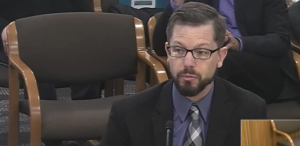
In a victory for Oregon public school students, Governor Kotek signed Senate Bill 819, which took effect July 13, 2023. The law prevents school districts from placing students with disabilities on abbreviated school days arbitrarily.
School districts had been placing over 1,000 students with disabilities a year on shortened schedules. These students received fewer hours of instruction and educational services than their peers when they really needed more attention and care. SB 819 ends this practice.
In the bill, the Legislature found that students with disabilities have “a right to meaningful access to the same number of hours of instruction and educational services” as other students and that “removal from school is neither a service nor support for students with disabilities.”
Instead of shortened school days, schools should provide behavior support plans and accommodations and services that students need. Rather than providing these supports and ensuring that students with disabilities can access a full day of education, school districts have engaged in the harmful practice of isolating students at home, away from peers and teachers who help them learn the skills to be successful.
SB 819 requires school districts to document reasonable efforts to provide the same number of educational hours, and obtain informed and written consent from a parent or guardian, before a student is placed on an abbreviated school day. It also requires districts that place a student on an abbreviated school day to justify the need pursuant to their individualized education program and regularly review the plan’s appropriateness.
Before the passage of SB 819, school districts were only required to meet with families to reconsider the abbreviated day placement once a school term. This left children languishing at home for months, sometimes entire school years, missing out on crucial educational opportunities. These children were falling further behind their peers academically, behaviorally and socially, exacerbating the situation. SB 819’s requirement that teams meet every 30 days provides more opportunities to consult on progress and collaborate on ideas to better support the student. Parents have opportunities to express concerns or celebrate successes that could lead to increasing the student’s access to school.
SB 819 prohibits districts from using staffing challenges as a valid criterion for placing a child on an abbreviated school day. Previously, schools were placing children on abbreviated school days due to a lack of adequate staffing and the families were told that the children could not come back to school for full days until staffing issues were resolved. The new law ensures children are not denied meaningful access to their education based on a district’s staffing crisis.
Parents and foster advocates need more tools at their disposal to ensure that children are getting an appropriate education. SB 819 allows them to refuse consent for an abbreviated day when the school district hasn’t made sufficient efforts to keep the student at school, or to revoke their consent if the abbreviated day program is prolonged unnecessarily. It also provides a complaint process and oversight by local superintendents and the Oregon Department of Education. This ensures that abbreviated school days are only being used when necessary and comply with the law.